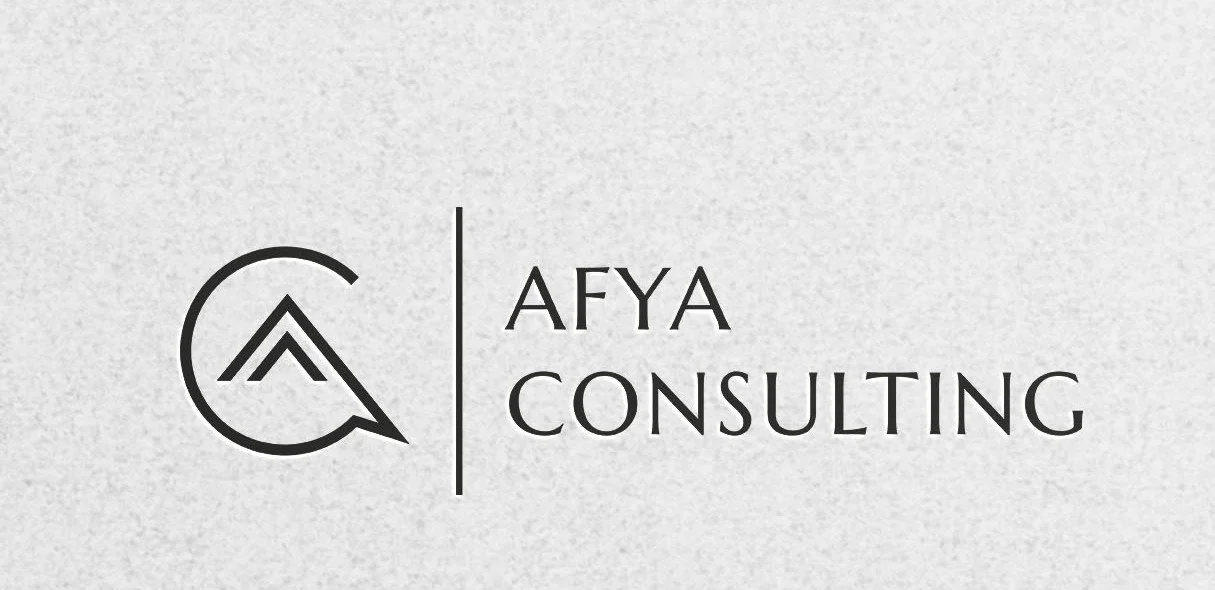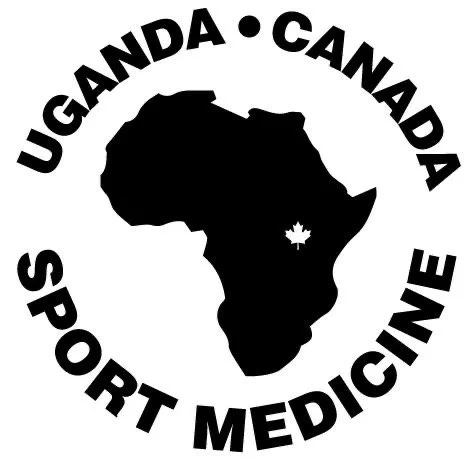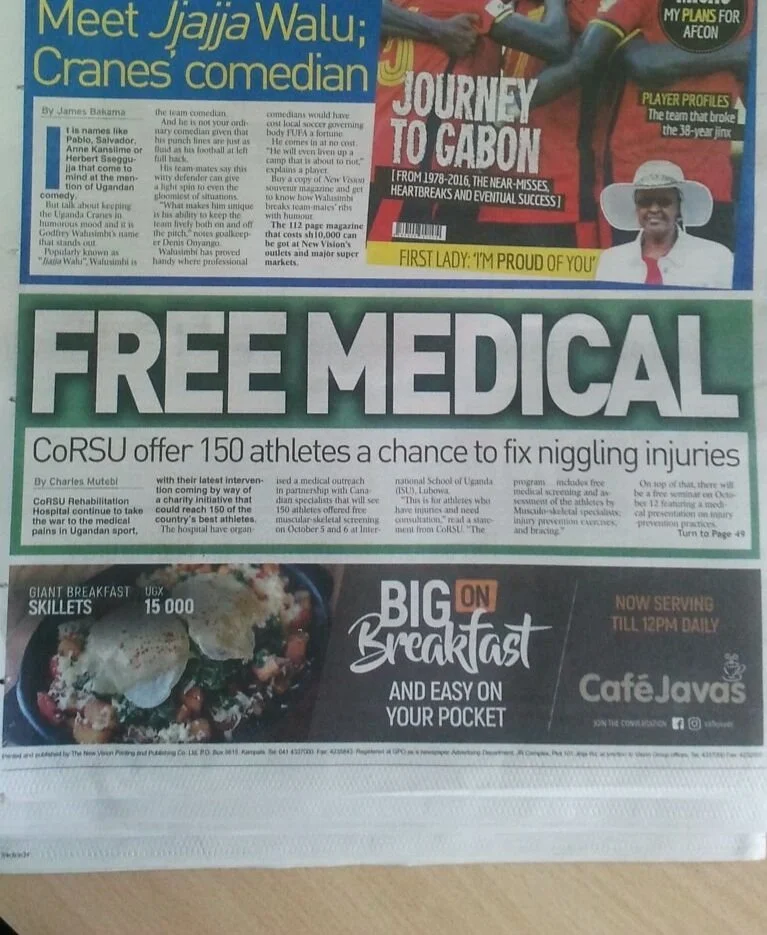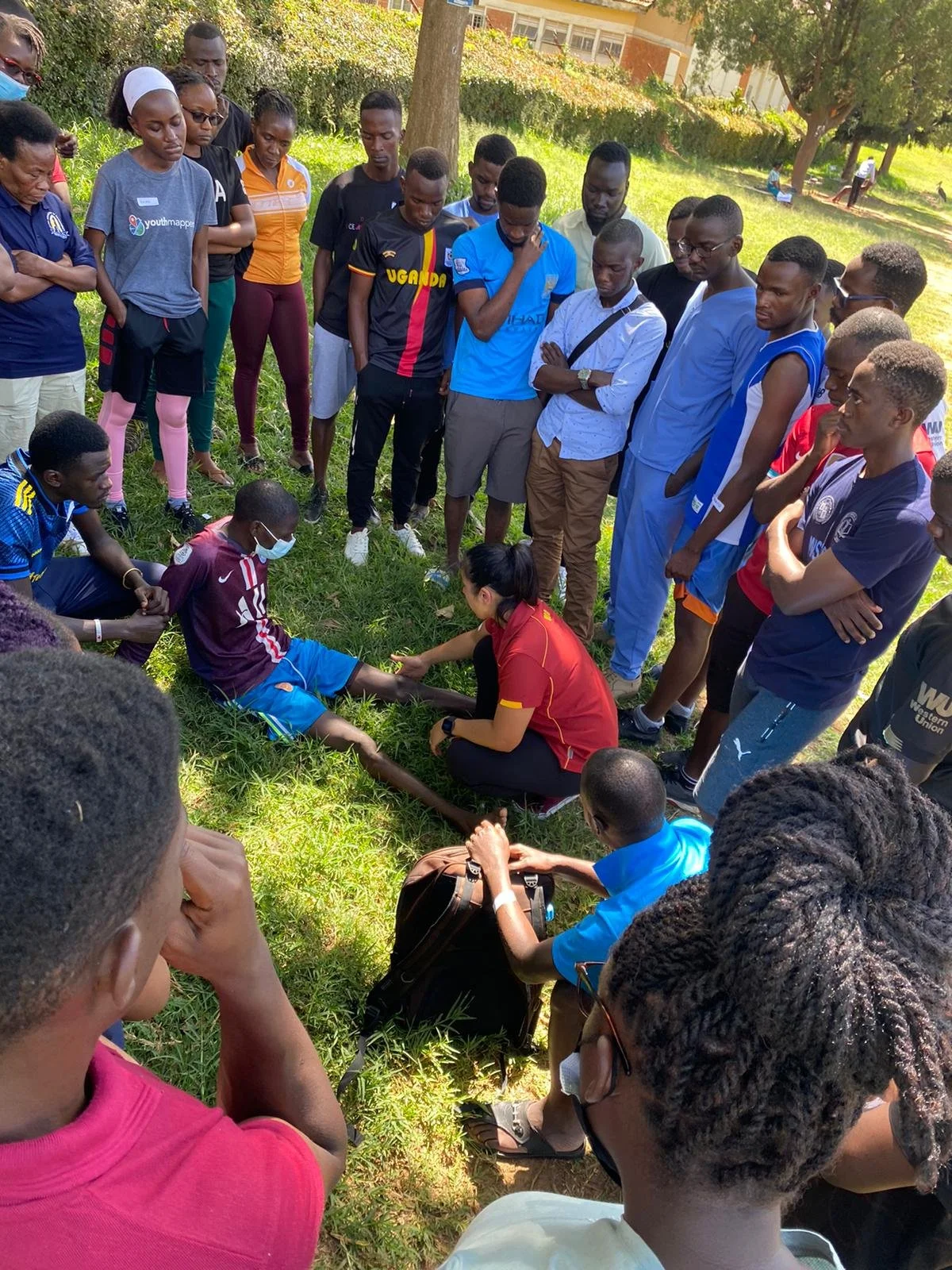
Starting and Building Canada-Uganda Sport & Exercise Medicine (CUSEM)
Starting and Building Canada-Uganda Sport & Exercise Medicine (CUSEM)
Background & Challenge
Uganda’s healthcare system faces persistent resource constraints, with only 1 doctor for every 25,000 people and a health workforce of approximately 15 providers per 10,000 residents, most of whom are concentrated in urban centres. Access to specialized care—particularly in musculoskeletal (MSK) and sport medicine—is extremely limited, especially in rural areas where over 80% of the population lives. Medical education systems offer few opportunities for advanced or practical training in these areas, leaving healthcare providers under-resourced to respond to a growing national burden of MSK conditions.
At the same time, Ugandan athletes at all levels—especially youth, university, and emerging elite athletes—often lack access to appropriate injury prevention, assessment, and rehabilitation support. Many sustain avoidable or poorly managed injuries, limiting their ability to return to sport and compete on the world stage. As life expectancy increases and more people engage in sports and sedentary work, chronic MSK issues such as osteoarthritis and back pain are becoming more common. With few trained practitioners and limited system-level support, the gap between MSK needs and available care continues to grow.
After several years of volunteering with other small health-focused non-profits in Uganda, Jo-Ann was introduced to CoRSU Hospital in Kisubi, Uganda through Canadian orthopedic surgeon Dr. Norgrove Penny. Seeing firsthand the hospital’s dedication to rehabilitation and surgical care for children with disabilities—and the broader need for MSK expertise—Jo-Ann was inspired to launch a project that would bring sport and exercise medicine training to Ugandan practitioners. This vision became the foundation for CUSEM: a collaborative initiative focused on sustainable knowledge exchange and locally driven capacity strengthening.
Approach
The Canada–Uganda Sport & Exercise Medicine (CUSEM) initiative officially launched in 2017, grounded in a systems thinking approach that recognized the complex and interrelated challenges facing Uganda’s healthcare system, sport infrastructure, and health professionals. From the beginning, CUSEM was designed not just as a training program, but as a collaborative effort that considered the broader context: limited access to MSK education, scarce clinical resources, and the health needs of underserved athletes. Recognizing this complexity, partner engagement and relationship-building were central to the program’s design and implementation, ensuring local relevance, alignment with national priorities, and long-term sustainability.
CUSEM began with yearly 2–3 week trips to Uganda, led by a multidisciplinary team of North American sport medicine physicians, sport physiotherapists, and pedorthists. During these visits, the team provided free community clinics for Ugandan athletes, bringing and fitting hundreds of braces and orthotic devices, while also delivering structured didactic teaching to Ugandan healthcare practitioners seeking advanced knowledge in sport and exercise medicine. These dual aims—immediate service delivery and long-term capacity building—remained a core part of the model.
As momentum grew, so did the scope of CUSEM’s activities—and the need for increased financial resources to sustain and expand the project. The number of trips increased to twice per year, with an even stronger emphasis on hands-on clinical training, pairing Ugandan and Canadian practitioners in real-time patient care environments. This experiential model allowed for deeper knowledge exchange and skill development that was context-specific and immediately applicable. Between trips, Jo-Ann led a range of fundraising initiatives in Canada, engaging team members to design and deliver community-based campaigns that helped cover the costs of travel, medical supplies, and educational resources. CUSEM continued to foster strong, collaborative relationships with institutions including the National University Sports Federation of Uganda, the Uganda Orthopaedic Association, Ugandan sport governing bodies, the Ministry of Sport, and Mbarara University’s Schools of Medicine and Physical Rehabilitation. These partnerships were more than logistical supports—they were co-creators of the initiative, helping ensure that CUSEM remained responsive, grounded, and aligned with Ugandan priorities and systems.Canada‑Uganda Sport & Exercise Medicine (CUSEM) project was founded to help fill this gap—by building local capacity, offering hands-on training, and advancing the role of rehabilitation in Uganda’s evolving health landscape.
Outcomes & Impact
Canada–Uganda Sport & Exercise Medicine (CUSEM) project made significant strides in improving musculoskeletal (MSK) care and advancing local clinical expertise in Uganda. Over the course of multiple visits, the team provided direct clinical care to more than 1,000 Ugandan athletes, offering assessment, diagnosis, and management strategies tailored to each individual. Many received custom-fitted braces, orthotics, and therapeutic footwear, as well as exercise-based rehabilitation programs to support safe return to sport and long-term recovery. These interventions not only improved immediate outcomes but also helped raise awareness about the importance of evidence-based MSK care within Uganda’s athletic and medical communities.
CUSEM also made a lasting impact through targeted training and mentorship. Ugandan physiotherapists gained specialized clinical education in sport and MSK medicine, including patient assessment, treatment planning, and rehabilitation best practices. In partnership with the Uganda Orthopaedic Association, the team delivered hands-on ultrasound training for orthopedic surgeons—covering both diagnostic techniques and guided joint injections. This transfer of knowledge and technology expanded local capacity for less invasive, high-precision care that previously may not have been accessible.
Beyond individual trainings and clinics, the program fostered sustained professional relationships and institutional partnerships, helping to embed MSK and sport medicine concepts into broader health and education systems, helping to support not only athletes, but other Ugandan’s with chronic MSK conditions. By focusing on real-world skill development, continuous partner engagement, and systems-informed practice, CUSEM has helped strengthen Uganda’s ability to meet the growing MSK needs of its people—both on and off the field.






